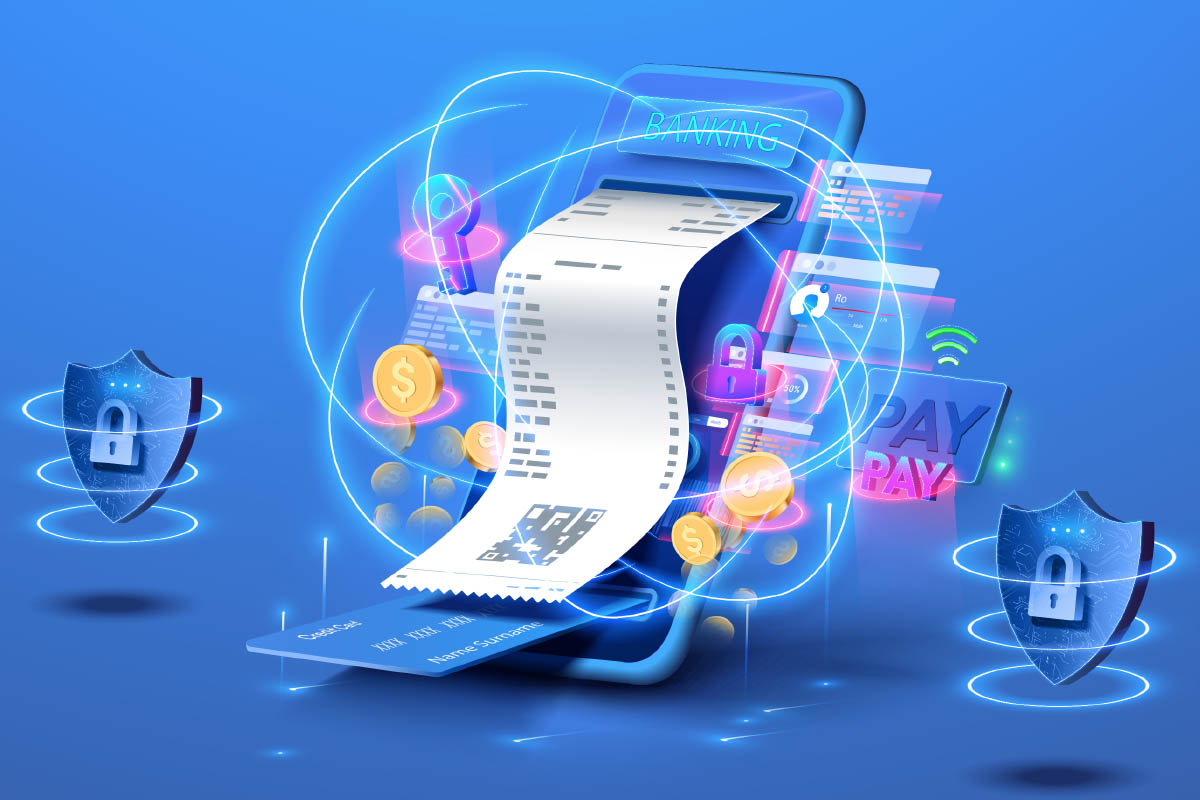From online shopping to subscription services, the convenience and efficiency of electronic payments are undeniable. However, beyond convenience, one of the most compelling reasons businesses embrace electronic payments is their potential to limit fraud.
Let’s delve into why accepting electronic payments can be a potent tool in combating fraud:
- Electronic payment systems use advanced encryption techniques to safeguard sensitive information during transmission. Unlike traditional paper-based methods, where sensitive data can be intercepted, electronic payments occur through secure channels, making it significantly harder for fraudsters to access and misuse data.
- Many electronic payment systems incorporate tokenization, which replaces sensitive cardholder information with a unique identifier or “token.” This means that even if hackers intercept transaction data, they obtain useless tokens instead of valuable financial details. Additionally, modern authentication methods such as biometrics, two-factor authentication, and dynamic CVV codes add extra layers of security, making it harder for unauthorized users to access payment accounts.
- Electronic payment platforms often use sophisticated algorithms and advanced technology to monitor real-time transactions. These systems can detect unusual patterns or anomalies revealing fraudulent activity and flag them for further investigation. By promptly identifying and addressing suspicious transactions, your business can mitigate potential losses and prevent fraudulent activities from escalating.
- Electronic payments minimize the risk of counterfeit currency. Unlike physical currency, electronic payments leave a digital trail you can trace and verify, making it extremely difficult for counterfeiters to replicate or manipulate transactions without detection.
- Electronic payment systems provide businesses with detailed transaction records and analytics, offering greater visibility into their financial activities. This transparency allows you to identify discrepancies or irregularities more efficiently, enabling you to take proactive measures to address potential fraud or errors promptly.
- By using secure electronic payment methods, your business shows its commitment to protecting customer data and ensuring transaction security. This fosters customer trust and confidence, leading to enhanced satisfaction and loyalty. Customers are more likely to use businesses prioritizing their security and privacy, ultimately driving revenue and growth.
- Electronic payments require adherence to stringent security standards and regulations, such as the Payment Card Industry Data Security Standard (PCI DSS). Compliance with these standards helps your business safeguard sensitive information and mitigates the risk of costly penalties or legal liabilities resulting from data breaches or non-compliance.
- Electronic payment methods allow you to reach a more diverse customer base worldwide. This global accessibility expands market reach and reduces reliance on cash-based transactions, which are inherently more susceptible to fraud and theft.
- Electronic payment providers usually offer comprehensive fraud prevention tools to help with your daily operations. These may include fraud detection programs, chargeback protection, and transaction monitoring services, giving you the tools to stay ahead of evolving fraud tactics.
While this is not an exhaustive list, it gives you some important reasons to offer electronic payments to your customers. By embracing electronic payments, your business can enhance security, mitigate fraud, and foster trust, convenience, and growth in an increasingly digital economy.
For more information on ways Quail Creek Bank can help your business offer electronic payments, click here or call 405-755-1000.


